Interview: "Many will have to rethink their strategy"
)
The data center industry was prepared to the crisis - thanks to the EN 50600 norms. But COVID19 will bring change - a talk with Thomas Wawra, CEO of the DCE Academy about the everyday life of data center professionals, skills shortage and operators rethinking their decisions from the past.
Let´s talk about some challenges that data centre professionals face currently during the current Covid-19 outbreak. Is working from home even a thing for the industry?
Thomas Wawra: These are testing times for every one of us, also for the data centre professionals whose main goal it is to keep the infrastructure of their respective company working.
There´s a special challenge in this sector: only a core group of very few operators are now present at the data centre location, while the rest of the teams are working remotely from home.
In Germany, and I think on a global scale, we're experiencing the fallout of a situation where almost everyone now is using up internet bandwidth like never before. Participating in video conferences, streaming music or watching HD content not only in the evenings after work, but also during the day. And let`s not forget about our kids who are not at school, but at home right now.
The IT infrastructures will soon reach its limits, sometimes they already have.
I talked to some of the operators I know, they are scaling up in order to basically solve these bandwidth problems. The work of all these specialists working in the data centre field will be even more crucial now than ever before.
So bandwith and availability is one challenge, but what about security? What do your clients experience? How do they run their business in this crisis.
My clients are in a way prepared, because they have business continuity and contingency plans in place. They are now operating in emergency mode, you can´t adapt to this from one day to another, even if you are prepared.
What does this emergency mode look like?
This means that only one person is allowed on site to do any physical required operations, for example edge. The rest of the team is working remotely.
The hosting applications and processes for these operations from home were done long before the corona virus. In order to work from the laptop at home, a staff member accesses a central computer gateway machine via VPN and Citrix. From there, they get e.g. access via two factor authentication or a secure ID card to the application he then can work on.
This process was tested regularly before COVID-19, but now they actually have to run their operations like this on an everyday basis.
How serious do you think operators took the possibility of a threat like this? Was a scenario like this ever discussed?
We`ve been doing our trainings for 13 years now. And one of our operational trainings is business continuity management, so yes the industry is of course aware of the risk of extreme situations. We do our best to do our part and remind especially big companies that they need to be prepared.
And there's good news out there also: The latest standard EN 5600 has played a very positive role. It became very popular during the last four years and was very well adapted. The first part of the standard is about risk assessment and it´s mandatory. So a lot of companies had to assess risks and come up with business continuity plans for extreme situations. They all benefit from these plans now.
But in all honesty, I think no one ever imagined what is happening right now. So many factors are coming together. The fact that everyone has to work from home is getting the IT infrastructure at the colocation companies to their limits. We cannot risk to exceed these limits. A breakdown of availability would be even more disastrous than in normal times. This would result in a complete collapse of our current work infrastructure.
How is business running now?
Of course, there are hiccups, even major problems, but business is running smoother and smoother, from what I heard from the major colocation providers in Frankfurt. We are still far away from business as usual, but I want to point out that data centres operators are doing a really great job.
Any long-lasting effects on the industry that you would predict?
I talked to several clients and some of them are rethinking their strategy. Before COVID-19, the trend was to outsource all non-mission-critical applications into the cloud. Now with almost everyone working from home, some companies experience serious performance issues that challenge their core business. Some of them told me they will reconsider some of the decisions and are planning to host all applications in their own data centre in the future. It took them less than one week to realise that they might need a data centre solution on their own on premises.
I've heard in other big companies in the financial industry, that they will start hiring more permanent personnel, meaning there will be an even bigger demand for data centre specialists than before.
Do you think the COVID-19 situation will have an effect in terms of skill sets that will be asked in the future?
We already have a skills shortage in the industry. There´s a study coming out saying that more than 20% of the experts are going to retire within the next 24 months.
There will be bigger demand for these skill sets. And what we have seen lately, with the EN 56000 standard becoming more and more important, businesses start focusing again on training their own employees people into data centre experts rather than outsourcing tasks.
Can you give an example?
Because the number of trainees is rising significantly less than two years ago companies usually sent one or two specialists to upskill them on the EN standard and business continuity. Now they're sending the complete data centre team on a national and international level.
They have realised that in a crisis, you cannot just rely on a handful of high skilled persons.
Two of my biggest clients said our training was crucial to react quickly in in times of crisis, because in the emergency meetings, all of the involved people had a certain level of knowledge and knew how to deal with specific technical problems to ensure availability and uptime.
This is also the reason why we have created a new 3 step training route called “Data Center Specialist”. It´s not a university degree, but it helps companies to get highly skilled data centre operators getting up to speed faster.
How agile are data centres when it comes to crisis handling? This buzzword is huge in other tech branches, especially in software development where the applications running on a data centres are built. Any thoughts about agile culture?
I think it's not a real trend yet. A data centre is such a complex environment that involves so many different parts and techniques. Agility is important and we have a chapter about that in our operation seminar. After the crisis we might see some movement here, I would agree if you said we need to learn more about this concept.
How are you as a trainer adapting to the situation? I see you offer an online course, LOL (Live Online Learning) also.
After the events of the corona crisis, we needed to address data centre professionals at home.
We had to make sure to grant them access to the crucial knowledge of our training. Managing data centres involves both staff from IT and facilities. This combination of people and technology is challenging, but it can also be fun and this is what we want to translate into our training approach.
This is why we play card games, online games like “Kahoot”, a game-based learning platform, do live demos and on-site tours in existing data centres. The networking aspect among the participants of our seminars is actually great for learning too, so we put a big emphasis on this at DCE Academy.
We have spent 10 years discussing online learning, but in reality the online learning market share was never more than 5%. Granted, people are a bit reluctant, a bit reserved sometimes at first when it comes to online learning. But then again we all want to be up to date and people still need access to information especially in times like these. And what could be easier than learning from the comfort of their offices or homes?
Thomas Wawra

Thomas Wawra, Dipl. Ing.
Dipl. Ing. Thomas Wawra founded DCE academy GmbH in 2007 and developed the company into the leading provider of manufacturer-neutral training in the field of data centres based on the EN 50600 standard. As a sponsor, he actively supports the internationalization of the ISO 22237 standard and speaks at congresses worldwide about standardization issues. Prior to his engagement at DCE academy Thomas Wawra was the general manager Europe of Venali Inc., Miami, USA for 10 years.


)
)
)
)
)
)

)
)
)
)
)

)
)
)
)
)
)
)
)
)
)
)
.png/fit-in/1280x9999/filters:no_upscale())
)
)

